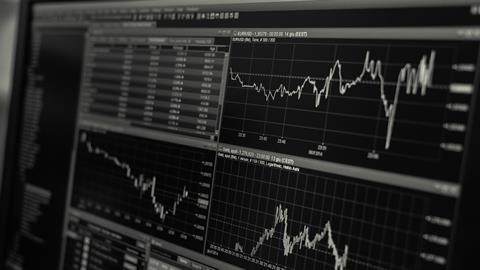Declining more than the stock market in general, the share prices of public sporting goods companies have taken a serious beating since the Covid-19 outbreak began with the start of the Chinese New Year, falling overall by 32.3 percent on average through the end of the first quarter.
In contrast with its relative resilience in previous years, the industry fared worse than other sectors such as food or telecommunications because it deals with non-essential items, unlike those sold in the retail stores that have been allowed to stay open during the confinement in Europe.
During the same period, the Eurostoxx index was down by 23.9 percent, the Dow Jones Industrial Average was by 24.4 percent, the FTSE index by 25.2 percent and the Japanese Nikkei by 22.5 percent. With the epidemic easing in China, where it started, the Hang Seng Index in Hong Kong registered a lower drop of 15.6 percent.
A list compiled by Sporting Goods Intelligence show that European companies lost collectively 38.5 percent of their value, with the Frasers Group (former Sports Direct International) faring the worst. Adidas and Puma performed a little better than their retail clients, including JD Sports Fashion.
Asian industry stocks fell at a slightly more modest rate of 27.4 percent. Yue Yuen and Asics had the worst performances. Shimano was down by just 10 percent and the large Chinese brands did better than the average.
U.S.-based companies had a drop of 34.3 percent overall, but with a wide spread from one company to the other. With their strong cash and brand power, Nike and Lululemon were off by around 20 percent. Retailers like Dick’s Sporting Goods, Foot Locker and Zumiez suffered a lot because of the closure of their stores in the U.S. and other countries. Among the vendors, the biggest losses were sustained by Callaway Golf, Under Armour and Wolverine Worldwide.
Suppliers of sports equipment have suffered less damage than specialists in other categories, falling by 19.9 percent on average. Retailers got the biggest hit with an average slump of 42.4 percent, but China’s Topsports had a lower loss. Apparel companies lost 35.0 percent of the stock market capitalization with Canada Goose suffering the highest decline, probably due to the fact that, unlike Moncler, it owns its own factories. The footwear companies performed just a little better with a collective drop of 31.4 percent on average.
Economists have started to predict steep declines in consumption, international trade and the general economy due to the novel coronavirus, possibly leading to the biggest global recession since World War Two. As the sporting goods sector deals with non-essential products, many of which are intended for only one season, this will certainly have an impact on many sporting goods brands and retailers, especially those that are most fragile in terms of cash and indebtedness.
In Europe, consumer confidence in the economy declined by 13.6 percent in the first two weeks of March in the 28 member countries of the European Union, according to a survey conducted by GfK for the European Commission, reaching the lowest level since 2006. It probably went down further in the subsequent weeks.
According to the same study, European consumers’ expectations about the economy was off by 20 percent overall in the first two weeks of March. The biggest declines as compared to a year ago were registered in Italy, Finland and Turkey. Italy, France and Austria recorded the biggest sequential drops between February and March.
Economists are divided about the timing and scope of the recovery after it’s all over on the health front. In view of the worsening market situation and a bleak outlook for the next few months, many companies have taken pro-active measures to save money, cancelling stock buyback programs and getting their top executives to cut their salaries. As indicated further below in this issue, many public companies have been downgraded by the rating agencies. We assume that private companies are generally even more at risk.
Across all sectors of the economy, bankruptcies are expected to rise by 25 percent around the world this year because of the economic recession that will most likely be triggered by the Covid-19 pandemic, according to a new forecast released by Coface. The French credit insurer’s forecast assumes a gradual economic recovery starting in the third quarter and rules out a second wave of the epidemic.
Coface expects bankruptcies to rise by 39 percent in the U.S. and by 33 percent in the U.K. In Continental Europe, it sees bankruptcies rising by 22 percent in Spain, 18 percent in Italy, 15 percent in France and 11 percent in Germany. Coface warns that the impact of the crisis could be stronger in emerging markets, where it plays a key role in backing export activities to those countries. In January, the agency was anticipating a 2 percent rise in bankruptcies in 2020.
Of course, bankruptcies may create opportunities for mergers and acquisitions, as there is still a lot of cash around, including the money that institutional investors and others have taken out of the stock market. Likewise, investors may be tempted to buys shares in sports and outdoor companies at this stage, feeling that they have more of an upside if and when the epidemic has been dominated.
There is anyhow a certain feeling that governments, health care institutions and businesses are doing what is necessary or useful to mitigate the spread and the effects of the virus. After weeks of uncertainty, which has led to extremely volatile conditions in equity markets, stock market indexes have shown more positive trends in the past few days. Between March 31 and April 9, the Dow Jones has recovered by 8.2 percent and the Eurostoxx has gone up by 3.8 percent.








